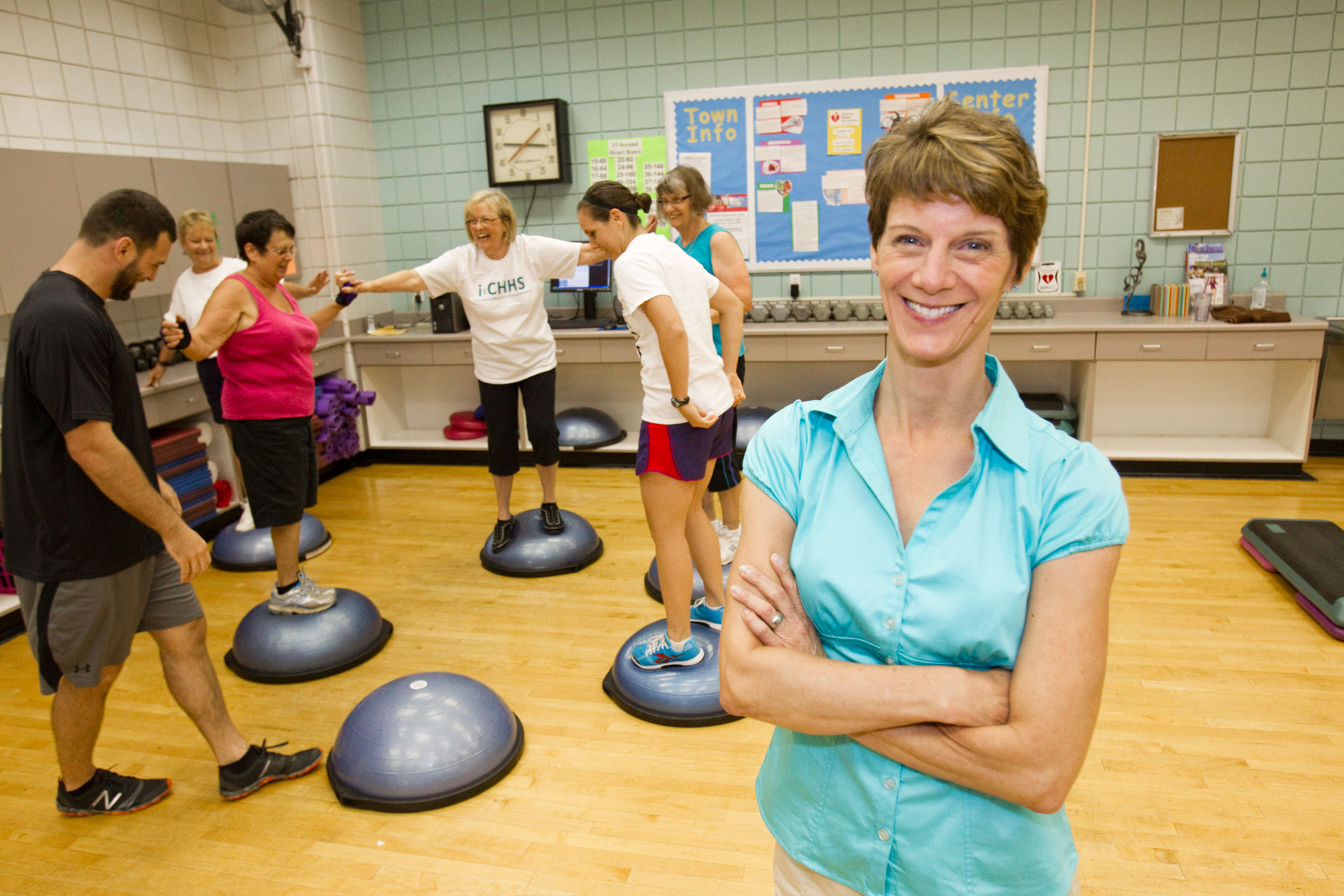Ellen Evans wants to make a difference in the quality of people’s lives-particularly, in older women’s lives-with her research and teaching.
As part of the Obesity Initiative at UGA, Evans currently is studying how older people can best lose weight, while at the same time preserve bones and muscles.
Weight loss in older adults can have negative effects on bone health and muscle strength, potentially leading to increased risks for osteoporosis and physical impairments such as decreased mobility.
“As people age, they become frailer. So what is the best approach for safe weight loss in older people? How much do they benefit in terms of improved health outcomes?” Evans asked. “For older adults, we start worrying about them falling and breaking a bone and then being unable to physically take care of themselves.
“No one wants to lose their independence, have to be taken care of or be placed into a nursing home,” she also said. “So, it becomes very important that we design exercise and nutrition interventions to preserve both bone health and muscles for physical function.”
Evans co-directs the Obesity and Exercise Team of the Obesity Initiative with Mary Ann Johnson, a professor of foods and nutrition in the College of Family and Consumer Sciences and an adjunct professor of kinesiology in the College of Education.
To further determine how best to treat obesity in older adults and what may be the best diet and exercise regimens for them, Evans and Johnson are studying the effects of a higher-protein weight-loss diet and exercise on body composition, physical function and fatigue in overweight women ages 65 to 80. Higher protein diets include foods such as lean beef, salmon, turkey and chicken.
Evans is also the director of the UGA Center for Physical Activity and Health, which recently has undergone a transition from being a cardiac rehabilitation facility into a more contemporary fitness center for all populations, particularly faculty and staff on campus.
Although she grew up in the Midwest, earned bachelor’s and master’s degrees in Illinois and started her career as a fitness professional at the University of Illinois, she earned her doctorate at UGA under the guidance of Kirk Cureton, professor and head of the kinesiology department.
After postdoctoral training at Washington University School of Medicine in St. Louis, Evans returned to the University of Illinois to begin her academic career where she established a reputation for her research in body composition and exercise over the next several years.
However, she enthusiastically pursued the chance to work once again with her mentor and within the kinesiology department, which is not only a top-ranked department due to its research and academic programs but also has an exceptionally healthy work culture.
Since joining the UGA faculty in 2010, Evans has secured $1.8 million in new external funding, $1.3 million as a principal investigator.
While research collaborations, such as the one with Johnson, are among the most favorite aspects of her job, mentoring graduate students is the part of her work she says she enjoys most.
“It’s because they are the future. They’re all different and they’re all going different places and their contribution to the field will be different,” Evans said. “It’s so fulfilling to watch them develop and grow.”


